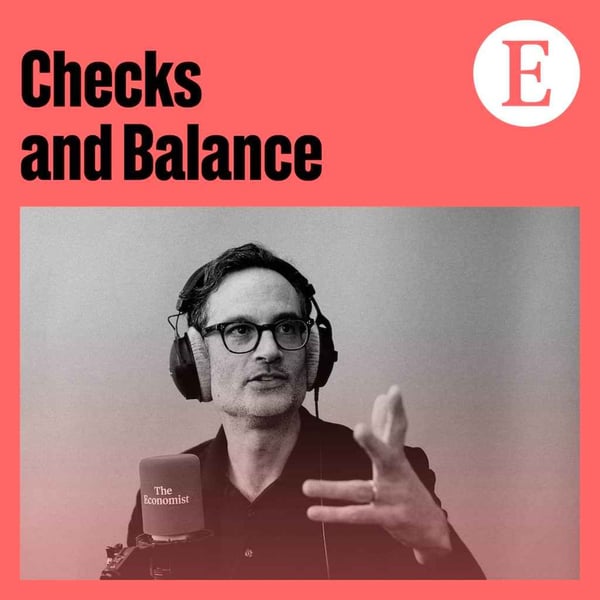Checks and Balance: Pivotal partnerships
Checks and Balance from The Economist
The Economist
4.6 • 1.7K Ratings
🗓️ 3 June 2022
⏱️ 45 minutes
🧾️ Download transcript
Summary
Another American administration, another much-vaunted pivot to Asia. Republicans and Democrats agree that America needs to respond to China's growing regional clout, but that's where the harmony ends. War in Europe is diverting attention, much of Asia has doubts about America’s reliability and China warns that any attempt to build an “Asian NATO” is “doomed to fail”. What is the Biden administration’s Asia strategy?
Scott Kennedy, senior advisor on China at the Centre for Strategic and International Studies, assesses the administration’s long-awaited plans for countering Chinese regional influence. We find out how America pushed its Western defensive frontier all the way across the Pacific. And our US economics editor Simon Rabinovitch weighs up whether the new Indo-Pacific Economic Framework is a disappointing “nothing burger” or a vital seat at the table.
John Prideaux hosts with Charlotte Howard and Jon Fasman.
For full access to print, digital and audio editions as well as exclusive live events, subscribe to The Economist at economist.com/uspod. Subscribers can also sign up to our “Checks and Balance” newsletter at economist.com/newsletters
Hosted on Acast. See acast.com/privacy for more information.
Transcript
Click on a timestamp to play from that location
| 0:00.0 | 300 years of expertise in every twining sleep blend, 100 hours of craft in every |
| 0:09.7 | cup, eight natural ingredients in every sip, one night of winding down in every |
| 0:18.1 | drop, your moment of serenity brought to you by twining sleep, twinings, |
| 0:26.8 | alive in every drop. |
| 0:34.4 | When he died in 1848, John Jacob Astor was America's richest man, but at the end |
| 0:41.7 | of the 18th century he was fresh off the boat from Germany with nothing but a |
| 0:45.6 | cargo of musical instruments to sell. The young Johann quickly found that |
| 0:50.6 | flutes wouldn't make his fortune, but first might. And he had such success in |
| 0:56.4 | the third trade that he caught the attention of the president. Thomas Jefferson |
| 1:00.7 | was looking for someone brave or foolish enough to try to build up a settlement |
| 1:05.1 | on the Pacific coast to compete with the European empires trading tea, gin-sang |
| 1:09.8 | opium and silver with China. And Astor was his man. Astor, he said, would one day |
| 1:16.2 | be viewed alongside Columbus and Raleigh as the founder of such an empire which |
| 1:21.3 | will arise from commerce. To secure its future, America has long looked |
| 1:26.9 | west beyond its shores to Asia and for American power to reach across the |
| 1:32.0 | Pacific, Jefferson knew it would have to be built on trade. Two centuries later |
| 1:37.7 | the task of securing America's economic and military relationships with Asia is |
| 1:42.1 | even more urgent and considerably more complicated. I'm John Prado, this is |
| 1:48.4 | Checks and Balance from the Economist. Each week we take one big theme |
| 1:54.9 | shaping American politics and explore it in depth. |
| 2:06.1 | Today, how much power should America wield in Asia? |
| 2:19.4 | The Biden administration is busy laying out the blueprint for its strategy across |
... |
Please login to see the full transcript.
Disclaimer: The podcast and artwork embedded on this page are from The Economist, and are the property of its owner and not affiliated with or endorsed by Tapesearch.
Generated transcripts are the property of The Economist and are distributed freely under the Fair Use doctrine. Transcripts generated by Tapesearch are not guaranteed to be accurate.
Copyright © Tapesearch 2025.

